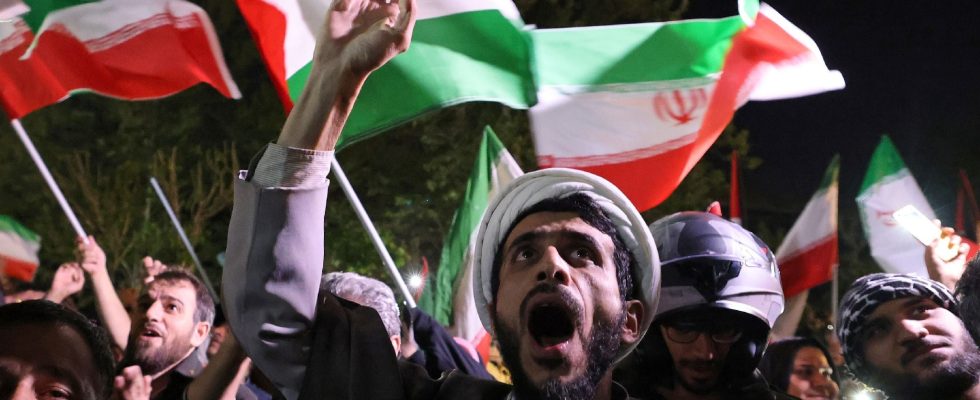A month ago, at the international arms fair in Doha, Iran proudly displayed its new products, including its latest addition, a high-precision drone symbolically named “Gaza”. For several years now, the Islamic Republic has made a specialty of producing this type of relatively low-cost weapon. In Doha, the Iranians aimed not only to show off their weapons, but also to sell them after the UN embargo expired. In recent days, however, Tehran’s leaders are more keen to accumulate stocks.
With the April 13 attack against Israel, the Iranian government wanted to settle scores with the Israeli enemy. “It is reasonable to believe that the leaders of the Revolutionary Guards were afraid for their own lives, and they had to do something to stop Israel,” assures Fabian Hinz, researcher at the International Institute for Strategic Studies (IISS). and weapons specialist. “At one point, the Iranians felt obliged to respond, because the Israelis were hitting harder and harder. After the embassy in Damascus, it could have been Beirut,” adds Alex Vatanka, director of the Iran program at the Middle East Institute. , in Washington.
However, it is unlikely that the Israelis will stop there. “If there were to be a response from Israel, an Iranian ‘counter-reply’ would logically be even more important than this first salvo,” highlights David Rigoulet-Roze, associate researcher at the Institute of International and Strategic Relations. (Iris). But have the Iranians unleashed all their power or do they still have a hidden arsenal in the event of escalation? And above all, do they have the political will? Julian Barnes-Dacey, director of the Middle East program of the European Council on Foreign Relations, considers that they “always want to avoid a direct confrontation, but it would be a mistake to think that Iran is not able to respond more strongly to strikes on its own territory, strikes which they would see as an existential threat.
According to Alex Vatanka, “we have definitely left the era of shadow warfare and proxies without yet being at the stage of truly open and direct confrontation. We are in a gray zone. There was this time a deliberate intention not to kill Israelis.” If they had wanted to hit harder, they could have, insists the researcher. For Fabian Hinz, the question of distance is an issue that limits Tehran, restricting the type of missiles used. But Lebanese Hezbollah, very close to Israel, has other options.
The nuclear question
What could nevertheless limit the Islamic Republic in its response is its tense financial situation. Iran has used a number of missiles, some of which are more sophisticated, such as the Fattah hypersonic missile, at significant cost. And, apart from Hezbollah, Iran could not count on the Houthis in the event of another direct attack on Israel. However, if the Americans were drawn further into the conflict, the unleashing of proxy attacks on multiple fronts could put them in difficulty.
Another unknown, the nuclear question. In the absence of an agreement, no one is able to say what state the Iranian nuclear program is in, but the probability of a stock of uranium enriched to 90% is the first step for the construction of an atomic bomb has reached consensus today. It is not unlikely that the Iranians will be able to do at least one test. Test which would prove to the world that their deterrent capacity is still very present.
In this equation with multiple unknowns, there is that of the support of the Iranian population for its leaders, eighteen months after the start of the “Women, Life, Freedom” movement. On social networks, many Iranians in the diaspora show their friendship to Israelis. In Iran, the slogan “Neither for Palestine nor for Lebanon” was regularly seen in various demonstrations against the government. And in a country marked by eight years of war with Iraq, the idea of a direct attack on Iranian soil cannot be taken lightly by the population.
.
